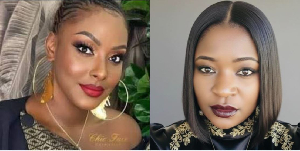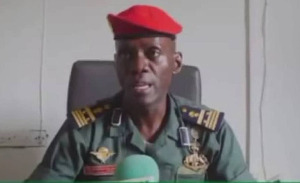The recent discussion with local chiefs by the Divisional Officer, DO, for Buea, Paul Wokam Kouam, in some villages in the Buea Subdivision, has not only generated resentments, but also split these villages into factions.
Days after the consultative talks ended, complaints, petitions and memos of discontentment emerged. Offices of the Governor, Senior Divisional Officer, Human Right Commission and some media houses became the destinations of these ‘epistolary bombs.’
One of such villages, which is at the brink of war following the consultative talks and the subsequent appointment of a chief is Wonya-Mavio. In a complaint dated July 7, 2014, and copied to the aforementioned offices, the Wonya-Mavio indigenes accused the DO of being bias in the consultative talks.
According to the locals, Wokam Kouam conducted the consultative talks in opposition to article 8 and 11 of decree No. 77/245V of 15 July, 19977 organising chiefdoms. Article 8, the complaint holds, states that “Chiefs are, in principle, chosen from families called upon to exercise traditional customary authority. Candidates must meet the physical and moral conditions required and must, as far as possible, know how to read and write.” Article 11 of the same decree called on the DOs to make use of family heads or king makers. These two provisions, the Wonya-Mavio folks said were flouted by the DO with impunity, as he humiliated family heads and king makers, which his predecessor, Abraham Chenkem, had put in place during the 2012 pre-consultative talks.
According to the locals, the DO unilaterally ‘handpicked an illiterate chief,’ and imposed on the people. The ‘handpicked Chief’ and his father,according to the Wonya-Mavio elites are notorious for illegal selling of the communal lands. In one of the several disputed land cases filed against Andrew Mofako Lyonga, the DO, on January 17, signed a document, urging the would be chief to refund FCFA 2.5 million to Amos Nkepo Saikedra, which he swindled from the illegal sale of village land. The father of Mofako, the elites said, is among a group of individuals who were dragged to court for selling streets in the village to non-indigenes.
The Wonya-Mavio locals fear that if such a nuisance is allowed to occupy the traditional stool of the village, even the ancestral sites will be sold off to strangers and the village will be wiped out. The indigenes equally accused the DO of engaging in non-indigenes like Oscar Ngale from Bokwai and Ewangu Ekema during the consultative talks. The duo, the locals said, were later on used by the DO as king makers, while the real king makers were chased off by police for protesting.
Why DO Humiliated Caretaker Committee According to Charles Mwambo Mbella, one of the candidates of the Wonya-Mavio traditional stool and Chairman of the Wonya-Mavio Caretaker Committee, the DO decided to handpick an illiterate whom he can easily manipulate, intimidate and control.
Mwambo told The Post that as Chairman of the Caretaker Committee, Wokam approached him and asked for a plot of land, which he said; he wanted to sell to a petroleum company for the construction of a filling station. “The DO promised to share the proceeds with me after the sale. But when I refused to cede the plot of land to him, on the basis that the land in question was communal land meant for the natives, the DO fell out with me and is now using my rival against me. A few days after our fallout, the DO authenticated a photocopy of a list of names for the sharing of Wonya-Mavio communal land, a village he does not know. We the natives of Wonya-Mavio have interpreted this act as an attempt by the DO to sell off our village to strangers and we will not look on unconcerned,” Mwambo stated.
On his part, the DO said his action and judgment during the consultative talks in Wonya-Mavio were guided by the law and other traditional rulers of Bakweri villages.
“I was not partisan because there were other Bakweri chiefs to guide my actions, according to their custom and tradition and everything was done in the open. The people of Wonya-Mavio were indiscipline and disunited. King makers and family heads were changed on the eve of the consultative talks for selfish interests.
Most of them could not even agree amongst themselves, that is is why I had to send out two members of the same family who were presented as family heads to go out and agree among themselves who the family head was. But those whom the village recognised as family heads were used.”
According to Wokam, the law says the DO can obligatorily consult the elders who are chosen from various families before designating a chief. An exercise which he said was done by his predecessor. “Some people came to the consultative meeting with a lot of confidence that they will be chosen as chief, but since the exercise did not favour them, they are now taking the matter as a do or die affair. I told them that if they were not satisfied with the outcome, they should indict me to my superiors,” Wokam asserted.
On the issue of land, the DO said, because of the double dealings and the illegal sale of land in Wonya-Mavio, he was contacted by a petroleum company that needed land for the construction of a filling station. “When I explained this proposal to the Chairman of the village caretaker committee and he declined, I was forced to give up.”
He refuted the allegations of having authenticated a list for land sharing in Wonya-Mavio. According to Wokam, the villagers wanted the lists to be authenticated in the presence of all, which was done. He said the reason why everybody is clamouring for the Wonya-Mavio traditional stool is because of land that has been ceded to the village.
Meanwhile, the President of the Buea Chiefs Conference, Chief Francis Linonge Kinge, said the DO respected the customs and tradition of the Bakweri people in the selection of the Chief of Wonya-Mavio. According to him, it is the wish of the Buea Chiefs Conference that the traditional stool of all villages within the Subdivision should be occupied by the rightful heirs. Chief Kinge said from the days of Mokonya Liwondi, the Wongoli family has always been the royal family of Wonya-Mavio. This, he said, was confirmed in the 2001 and 2008 pre-consultative talks.
“I was surprised that some overzealous members of the Wokeli family wanted the chieftaincy custom of the Bakweri people to be changed from hereditary to rotatory, this can never happen,” the Chief said.Chief Kinge said the Caretaker Committee created in 2012, was tasked to unite Wonya-Mavio not to change the chieftaincy linage.
According to him, Andrew Mofako Lyonga, a Wongolis is a square peg in a round hole and can only be toppled, if found wanting in character and integrity. Meanwhile, Andrew Mofako Lyonga, refused to comment on the subject.
Actualités Régionales of Saturday, 19 July 2014
Source: The Post Newspaper













